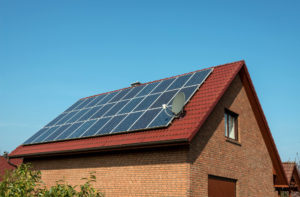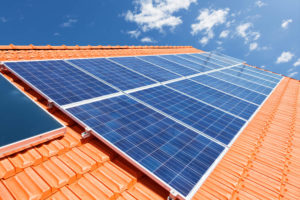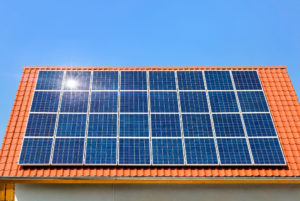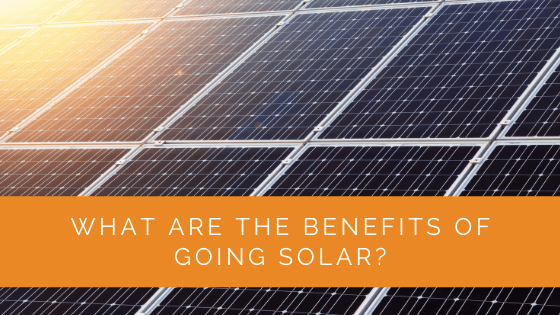Solar energy systems have made their mark everywhere, from residential rooftops to various media and government initiatives. Their rise in popularity isn’t just a trend; it reflects how solar power has become more accessible and budget-friendly than ever before.
While the initial cost of solar panels can give some consumers pause, it’s important to consider the bigger picture. Solar power is not just about saving on electricity bills or reducing your environmental impact; it’s an investment in a sustainable future. This energy source offers long-term benefits that extend beyond just financial savings. Dive into this article to discover the comprehensive advantages of embracing solar energy for your home and the environment.
Contents
Key Takeaways
- Solar power offers multiple benefits, including reduced electricity bills, decreased greenhouse gas emissions, and energy independence.
- Solar energy contributes significantly to combating climate change by reducing dependency on fossil fuels and lowering carbon emissions.
- Installing solar panels can lead to economic benefits, such as generating free power, saving on utility bills, increasing property value, and providing profitable returns on investment.
Impact Of Solar Panel System
When you think of solar energy, the first thing that comes to mind is the reduced electric bill. Solar panel installation can indeed lead to low energy costs.
However, this clean energy has several positive impacts on the world and the global population.
- Environmental benefits
- Economic benefits
- Energy independence
Moreover, you can understand how solar panels contribute to the overall health of the global population by analyzing each factor.
Environmental Impact Of Solar Power
 Solar energy became popular due to the adverse effects of fossil fuels. You might recall the science classes explaining carbon dioxide emissions and a depleting ozone layer.
Solar energy became popular due to the adverse effects of fossil fuels. You might recall the science classes explaining carbon dioxide emissions and a depleting ozone layer.
So, if you think about the whole world, solar has become a crucial aspect of combating greenhouse gases emissions.
Here are the main points of solar power that help combat climate change.
- Reduced dependency on fossil fuels
- Indirect reduction in carbon emissions
- Bifurcation of energy needs and power source
- Direct reduction in emission of CO2, NOx, SO2, and particulates
Hence, installing solar panels has a direct and indirect effect on the health of people and the planet.
Economic Benefits Of Installing Solar Panels
Before moving on to the detailed explanation of solar energy pros, here’s a quick look at the financial benefits.
- Solar systems generate free power
- You save money on the monthly utility bills
- Options like solar lease tax credit add to the benefits
- The property value increases in some states
Moving one step ahead, solar energy helps you save money in various ways. So, it makes perfect sense to invest in a solar power system that suits your needs.
Energy Independence Due To Solar System Installation
Off-grid solar panels infrastructure allows you to generate your own energy. So, people living in remote areas can function independently.
This ability to produce electricity helps people access different locations. Hence, businesses can now connect with any corner of the world.
How does this happen? A solar system powers gadgets and generates electricity. Hence, telecommunication lines, household activities can sustain in harsh conditions.
So, utility companies do not need to construct power lines and spend more resources.
Going Solar: Pros For The End Consumer
As electricity prices continue to rise, it is vital to shift and utilize solar savings smartly. Here’s how consumers combat rising electricity costs and enjoy gradual solar energy pros.
Reduction In Electricity Bill
One of the biggest benefits of solar homes is a steady decline in electric costs. Solar panels last for a decent duration of 20 to 30 years!
Hence, consumers have ample time to cover the upfront cost. Compared to conventional energy sources like fossil fuels, solar can save electricity in the long run.
Overall, local incentives, tax credits, net metering, and state subsidies contribute to reducing electric bills.
Improvement In Property Values
 A solar home is an upgrade to existing residential properties. In fact, installing solar panels can prove lucrative for potential sellers.
A solar home is an upgrade to existing residential properties. In fact, installing solar panels can prove lucrative for potential sellers.
With an average-sized solar system, buyers can pay an additional $15,000 to the property owner. So, if you install solar panels, the property will become more attractive.
In addition, going solar can help you sell the property at a faster rate. Note that some buyers can pay an additional amount depending on the kilowatt-hour cost of PV systems.
Profitable Returns Over Investment (ROI)
Firstly, this renewable energy source is termed a low-risk investment. Solar companies simply use well-defined technology to install solar panels on your rooftop.
Hence, home and business owners do not need to worry about environmental or property damage in the process.
In addition, you can benefit through tax credit and cover energy bills in the following ways.
- Net metering – Redirecting portion of excess solar energy to the utility grid
- Performance-Based Incentives – Incentives like PBIs pay installers money based on energy production
- Federal tax credit – 30% tax credit reduction in federal income tax on solar PV system installation
These incentives and ways can provide quick ROI to system owners. However, policies like the Federal tax credit can expire after a certain period.
Therefore, it is crucial to find a reliable solar company and invest in an environmentally friendly power source.
Low Maintenance Factor
Generally, consumers focus too much on state incentives and rebates after and during the installation of solar panels.
While it is crucial to analyze benefits like a decrease in electricity costs, indirect factor like low maintenance helps save money.
Solar panels are easy to maintain and robust in construction. Hence, you save cash over periodic maintenance activity. Also, solar providers offer regular cleaning and repair of components with low fees.
Are There Any Solar Energy Cons?
The benefits of solar energy are straightforward, both directly and indirectly. Solar panels generate sufficient energy to power a house.
However, customers should also have an idea about the limitations or practical challenges of this power source. Eventually, they can assess how the benefits outweigh the cons.
High Upfront Cost
Amidst government incentives and state schemes, some customers still worry about the initial investment.
After all, installing a solar energy setup includes the following expenses.
- Material costs
- Labor costs
- Installation charges
- Miscellaneous costs
So, residential solar panels installation can cost an average of $19,000 (approximately). This cost varies according to a number of factors as below.
- Type of solar panels
- Electricity consumption
- Type of system
- Use of inverter, battery, and other components
These factors can lead to high initial investment. So, the cost of solar increases with the need for more energy.
Fluctuating Solar Savings
 Locations with low power outages have a robust power grid. Also, some states have fewer utility bills due to surplus energy, low demand, and other factors.
Locations with low power outages have a robust power grid. Also, some states have fewer utility bills due to surplus energy, low demand, and other factors.
In such a case, savings due to solar can be negligible. In simple words, if you already pay less than the national average, going solar won’t make a huge difference.
Existing Practical Challenges
Issues like rising material costs, trade wars, and disruption in the supply chain are at their peak currently. These challenges impact solar power systems and their installation.
Although these issues are rectifiable in the near future, they possess periodic challenges. Hence, this aspect affects solar energy and causes a rise in initial costs.
Final Verdict: The Pros Outweigh The Cons
Reduction in carbon dioxide, the electric bill, and greenhouse gases overshadow the major solar challenges.
It is true that solar power systems need proper rooftop design, locations with adequate sunlight, and expert solar companies.
Still, you can profit more from the benefits and overcome these cons. After all, a decline in the monthly electric bill is a prime motivator for global consumers.
Frequently Asked Questions
This section covers the common queries that arise in most curious solar shoppers and consumers.
Is it really worth investing in solar?
The clear-cut answer to this question lies in three simple aspects. First, if your location has high energy costs, going solar makes sense.
Second, if you have the budget to afford a decent solar system, you should invest in solar. Finally, solar is worth the attention if you want to contribute towards a greener planet and profit through incentives.
What are the biggest challenges of PV systems?
PV systems need the sun’s energy to produce electricity. Hence, they lose efficiency at night and during overcast weather.
Also, you need to install an inverter and battery setup to make the best utilization of solar power. Furthermore, the efficiency of energy conversion still remains low.
So, these basic challenges cause some concern for the widespread application of PV systems.
Do solar panels need cleaning?
Generally, solar panels are low-maintenance products. So, you can install and forget about their maintenance.
Still, washing and cleaning off the dust on panels can help maintain their efficiency. Also, professional solar installers can conduct routine checks to keep solar panels in an optimum state.
Experience Solar Excellence with Us!
Trust in Solar Panels Network USA, where our seasoned experts deliver top-quality solar solutions for homes and businesses nationwide. With a legacy of countless successful installations and a commitment to sustainable energy, we’re your reliable partner in the solar journey. Ready for a brighter, eco-friendly future? Call us now at (855) 427-0058 and harness the power of the sun!
Wrapping Up
Using a suitable solar setup, you can generate your own electricity without the need for dependency. Solar energy provides a wide array of much-needed benefits in today’s world.
Overall, installing solar can help combat climate change, inflation, thereby moving to a better future. The decline in solar system cost is a major motivator for many consumers.
You can plan, calculate, and install a tailor-made solar panel system from a reliable installer. Be sure to study local incentives before such an installation process.
About the Author
Solar Panels Network USA stands at the forefront of solar energy solutions, driven by a team of seasoned solar engineers and energy consultants. With over decades of experience in delivering high-quality solar installations and maintenance, we are committed to promoting sustainable energy through customer-centric, tailored solutions. Our articles reflect this commitment, crafted collaboratively by experts to provide accurate, up-to-date insights into solar technology, ensuring our readers are well-informed and empowered in their solar energy decisions.

